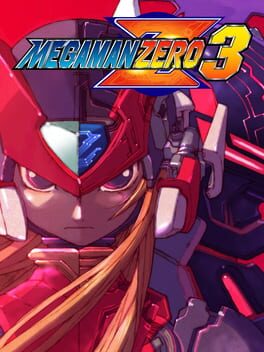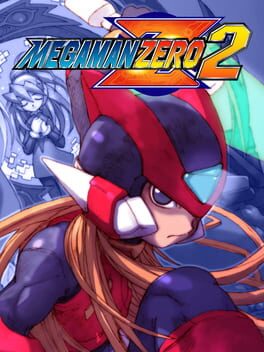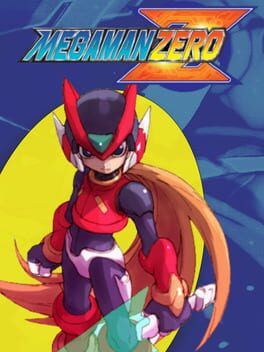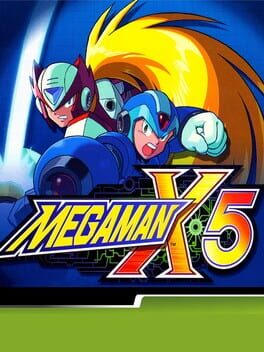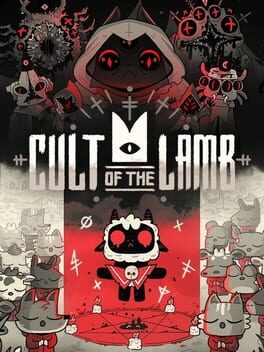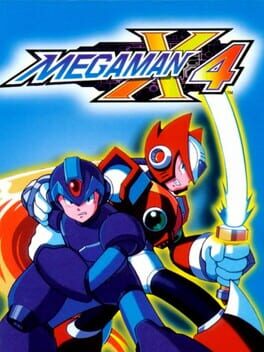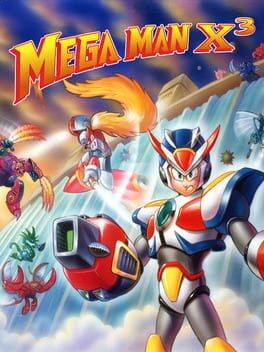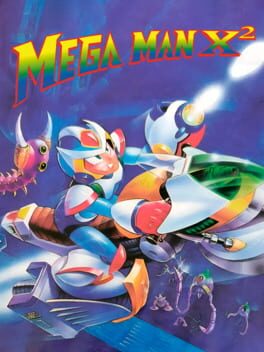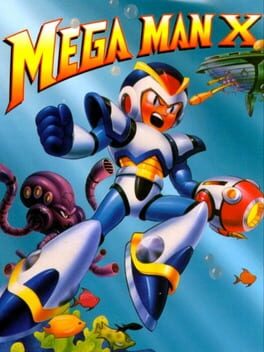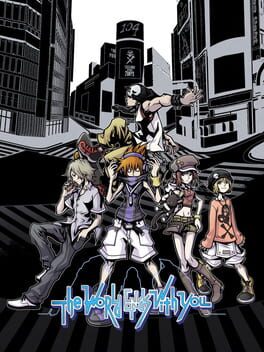I met my boyfriend in a Discord server for an indie game.
It's a bit silly when I put it that way. I bonded with him and fell in love with him because we both played a video game. As someone with a lot of neurodivergencies, though, the medium of a chat client made things... easier. I had a lot more control over how I presented myself, a lot less worry about my appearance or how I was carrying myself or the sound of my own voice. It was safe.
A little over a year after I first met him, I visited him in his home country thousands of miles away.
I won't ever forget the feeling of being in the hotel room, knowing he was arriving, and just waiting for him to show up.
One minute.
Two minutes.
Three minutes.
What if he doesn't like your dress?
Four minutes.
Five minutes.
Six minutes.
Wait, his mom is coming too?
Seven minutes.
Eight minutes.
You don't know what you would say to his mom! You barely even speak the same language as her!
Nine minutes.
This was all a mistake.
Ten minutes.
Maybe you should just-
I was thrust into it, regardless of my own preconceptions of "readiness". I survived, as unlikely as it sounds. Though it's something I wouldn't want to experience ever again, it's something I likely will, over and over. And over and over, it will be okay.
Post-Disclosure, Devil's Night understands this. It simply is this. That worry that those you care about in one space won't love you anymore in another, that they won't see you as the same. But the truth is that they're just as scared as you are - evocative prose in their head or not. It's a terrifying, exhausting, and draining experience, but ultimately a beautifully human one.
I wouldn't give it up for anything there is.
It's a bit silly when I put it that way. I bonded with him and fell in love with him because we both played a video game. As someone with a lot of neurodivergencies, though, the medium of a chat client made things... easier. I had a lot more control over how I presented myself, a lot less worry about my appearance or how I was carrying myself or the sound of my own voice. It was safe.
A little over a year after I first met him, I visited him in his home country thousands of miles away.
I won't ever forget the feeling of being in the hotel room, knowing he was arriving, and just waiting for him to show up.
One minute.
Two minutes.
Three minutes.
What if he doesn't like your dress?
Four minutes.
Five minutes.
Six minutes.
Wait, his mom is coming too?
Seven minutes.
Eight minutes.
You don't know what you would say to his mom! You barely even speak the same language as her!
Nine minutes.
This was all a mistake.
Ten minutes.
Maybe you should just-
I was thrust into it, regardless of my own preconceptions of "readiness". I survived, as unlikely as it sounds. Though it's something I wouldn't want to experience ever again, it's something I likely will, over and over. And over and over, it will be okay.
Post-Disclosure, Devil's Night understands this. It simply is this. That worry that those you care about in one space won't love you anymore in another, that they won't see you as the same. But the truth is that they're just as scared as you are - evocative prose in their head or not. It's a terrifying, exhausting, and draining experience, but ultimately a beautifully human one.
I wouldn't give it up for anything there is.
2005
After another long day of work, I come home and on my first day off in over a week, I immediately feel obligated to review the next game in this series. I open up my emulator and start Mega Man Zero 4. I see the title screen with those flashy Game Boy Advance interpolation rotation effects.
I feel nothing.
I get through the first level. It's fine. I fight the first boss. It's fine.
I continue to feel nothing.
What is the point? Why am I doing this?
Mega Man is a series that brings me no joy. I've only resigned myself to play it for the sake of others who want to read my thoughts on them. I'm sick of it. I can't keep doing this.
I'm sure Zero 4 is fine or whatever, it can't be much better or much worse than the other games in the series. I just don't have it in me to keep playing through these games. They all blend together in my mind and make me feel so empty.
I won't ever understand these games.
I feel nothing.
I get through the first level. It's fine. I fight the first boss. It's fine.
I continue to feel nothing.
What is the point? Why am I doing this?
Mega Man is a series that brings me no joy. I've only resigned myself to play it for the sake of others who want to read my thoughts on them. I'm sick of it. I can't keep doing this.
I'm sure Zero 4 is fine or whatever, it can't be much better or much worse than the other games in the series. I just don't have it in me to keep playing through these games. They all blend together in my mind and make me feel so empty.
I won't ever understand these games.
2004
This review contains spoilers
There's something that's been lost in the transition between Zero 1 to Zero 3. An aspect of this series that's been downplayed after the first entry, that you're finally fighting against the regime that Zero so harmfully helped protect during the days of the X games. It's a real touch and go battle of guerilla tactics, one where all ground gained feels incredibly minuscule or is invalidated extremely quickly. These ideas spoke to me a lot in the first game, even if I think Final Fantasy II achieved them in much more nuanced and interesting ways.
In Zero 2 and 3, we learn that the harmful systems that we previously assumed to have naturally come about due to the consequences of creating a slave race were actually all orchestrated by a man named Dr. Weil. This decision undercuts a lot of what the first Zero managed to achieve - it was a real rebellion, one against real systems that had no single actor as their origin point. In this game, though, it's become much more fantastical, one where an energy crisis is solved by one person and a mustache-twirling villain is behind the events of the story. It's totally lost me. Gone is a natural conclusion of the horrific nature of humanity, and in its place a shifting of blame. These systems have not failed - no, it was a big bad evil guy.
Zero's musings on his insecurities about identity make little sense to me when he's never shown them to be a part of his character before. It just feels like it comes out of nowhere. Never before has he been particularly fixated on this idea, but suddenly Weil uses this insecurity against him toward the end and it just becomes a plot point. It's resolved fairly quickly, but still - I know the game is largely concerned with Zero's age as a reploid and how he's been "obsoleted", but his identity is not much of an important factor to him. It's just odd to me.
It's a fine narrative, but it's lost so much of the punch that original Zero game had, and that's just disappointing.
In Zero 2 and 3, we learn that the harmful systems that we previously assumed to have naturally come about due to the consequences of creating a slave race were actually all orchestrated by a man named Dr. Weil. This decision undercuts a lot of what the first Zero managed to achieve - it was a real rebellion, one against real systems that had no single actor as their origin point. In this game, though, it's become much more fantastical, one where an energy crisis is solved by one person and a mustache-twirling villain is behind the events of the story. It's totally lost me. Gone is a natural conclusion of the horrific nature of humanity, and in its place a shifting of blame. These systems have not failed - no, it was a big bad evil guy.
Zero's musings on his insecurities about identity make little sense to me when he's never shown them to be a part of his character before. It just feels like it comes out of nowhere. Never before has he been particularly fixated on this idea, but suddenly Weil uses this insecurity against him toward the end and it just becomes a plot point. It's resolved fairly quickly, but still - I know the game is largely concerned with Zero's age as a reploid and how he's been "obsoleted", but his identity is not much of an important factor to him. It's just odd to me.
It's a fine narrative, but it's lost so much of the punch that original Zero game had, and that's just disappointing.
2003
This review contains spoilers
The power structures introduced in the X games to subjugate the robot species that feature in them were largely eschewed by the first Zero game. It was a pretty staunch rebuttal of the hierarchies that the X games had taken for granted as truth and an incredibly interesting way to explore that through the lens of a revolutionary.
In Zero 2, however, the developers begin to backpedal on these ideas as soon as it possibly can. The villain in this game is another revolutionary, one with a very violent way of going about his acts against the oppressive human state that you also rebel against. However, while his motivations start out as completely reasonable and understandable - the violence of the marginalized against those who oppress them in order to escape those oppressive structures is justified - it suddenly turns his plan into a complete and total genocide of humanity instead to avoid actually challenging the ideals of Zero or the player. By making him so ridiculously evil, the conversation ends before it starts, and in turn, the game portrays the idea that any violence against the oppressor is bad and that an alternative solution must be searched for even though sometimes there just isn't one. Instead of political revolution, the day is saved through magic tiny robot fairy things.
Sometimes revolutions have to be violent. Sometimes it's necessary to fight in order to overturn the state. But if the game portrays everyone who sees fighting as the best option as a genocidal monster, then the game also says that there's no point in engaging with people who just want to rebel against the systems that keep them in chains. It's the X games all over again, and it reminds me of the way bad faith actors often paint people seeking to decolonize the western world.
After such a strong start, the Zero games immediately falter.
In Zero 2, however, the developers begin to backpedal on these ideas as soon as it possibly can. The villain in this game is another revolutionary, one with a very violent way of going about his acts against the oppressive human state that you also rebel against. However, while his motivations start out as completely reasonable and understandable - the violence of the marginalized against those who oppress them in order to escape those oppressive structures is justified - it suddenly turns his plan into a complete and total genocide of humanity instead to avoid actually challenging the ideals of Zero or the player. By making him so ridiculously evil, the conversation ends before it starts, and in turn, the game portrays the idea that any violence against the oppressor is bad and that an alternative solution must be searched for even though sometimes there just isn't one. Instead of political revolution, the day is saved through magic tiny robot fairy things.
Sometimes revolutions have to be violent. Sometimes it's necessary to fight in order to overturn the state. But if the game portrays everyone who sees fighting as the best option as a genocidal monster, then the game also says that there's no point in engaging with people who just want to rebel against the systems that keep them in chains. It's the X games all over again, and it reminds me of the way bad faith actors often paint people seeking to decolonize the western world.
After such a strong start, the Zero games immediately falter.
2002
This review contains spoilers
Throughout the Mega Man X games, there's been a consistent throughline in all of their narratives. X and Zero are essentially operatives of a fascist state, one that kills all that it sees as opposition to its tyrannical rule. It is a world governed by human interests and oppression of the other, the robots that are functionally human but are treated as slaves. The games seem somewhat aware of this dichotomy yet always agree with the fascist views of X and Zero by the end. That ultimately, what they're doing is correct and should be continued. It's quite frustrating.
Mega Man Zero, though, decides to buck this trend entirely. Zero has lost all his memories and been recruited into a guerilla resistance cell, one fighting against the same hunters that he used to call himself a part of. You are the ones labeled as defective, the ones that need to be disposed of. Now you know what it was like to be hunted in the X games and it's handled brilliantly.
In many ways, it reminds me a lot of Final Fantasy II. Something incredibly palpable about that game is the sense of fruitlessness all of your actions as a group of rebels truly has; that regardless of your actions the conflict will continue on without you. You blow up the Empire's greatest weapon, a gigantic warship known for decimating entire cities, and it barely even affects their progress. You find an incredibly powerful piece of ancient magic, the classic Ultima spell, and find out that it's so antiquated in its damage output that it can't possibly be of any help to you. In Mega Man Zero, there's a similar relationship with the enemy - your rebellion does little in the grand scheme of things.
A particularly striking moment had to do with a factory that Zero takes over pretty early in the game for the resistance to find a substitute fuel source. Immediately after taking back said factory, it is nearly blown up by one of this game's robot masters and you have to save it from exploding. One step forward almost becomes two steps back. A hidden base of theirs you capture nearly has all its data wiped from it by them in order to prevent you from accessing it.
The game ends with you killing a copy of X, one that represents the original X series, and leaving all of the baggage that it has behind. Though the revolution is far from over, the game ends with a large modicum of hope that things will get better in the future. Things have already gotten better, even if only in a small way.
Though it's been centuries, the right steps are finally being taken.
Mega Man Zero, though, decides to buck this trend entirely. Zero has lost all his memories and been recruited into a guerilla resistance cell, one fighting against the same hunters that he used to call himself a part of. You are the ones labeled as defective, the ones that need to be disposed of. Now you know what it was like to be hunted in the X games and it's handled brilliantly.
In many ways, it reminds me a lot of Final Fantasy II. Something incredibly palpable about that game is the sense of fruitlessness all of your actions as a group of rebels truly has; that regardless of your actions the conflict will continue on without you. You blow up the Empire's greatest weapon, a gigantic warship known for decimating entire cities, and it barely even affects their progress. You find an incredibly powerful piece of ancient magic, the classic Ultima spell, and find out that it's so antiquated in its damage output that it can't possibly be of any help to you. In Mega Man Zero, there's a similar relationship with the enemy - your rebellion does little in the grand scheme of things.
A particularly striking moment had to do with a factory that Zero takes over pretty early in the game for the resistance to find a substitute fuel source. Immediately after taking back said factory, it is nearly blown up by one of this game's robot masters and you have to save it from exploding. One step forward almost becomes two steps back. A hidden base of theirs you capture nearly has all its data wiped from it by them in order to prevent you from accessing it.
The game ends with you killing a copy of X, one that represents the original X series, and leaving all of the baggage that it has behind. Though the revolution is far from over, the game ends with a large modicum of hope that things will get better in the future. Things have already gotten better, even if only in a small way.
Though it's been centuries, the right steps are finally being taken.
This review contains spoilers
I grew up in the early 2010's, and a lot of my earliest gaming opinions were formed based on the videos that I consumed at the time from content creators that I looked up to. I don't really agree with this methodology anymore, of course - it's much worse than simply playing games myself - but as a kid who didn't really have access to emulation a lot of the time, it was an easy way to pretend as if I had played a game and did know what I was talking about. I never played Metroid Fusion back then, but I'd insist that it was basically a horror title, because YouTubers claimed it to be.
Many of these YouTubers I watched at the time were around my age (then 10 years old) when they first played The Legend of Zelda: The Wind Waker. So, as adults, they were filled with nostalgia for the game, and that would manifest a lot in their videos. Oftentimes, this would additionally manifest as a distaste for the critical acclaim that Ocarina of Time had garnered, and they'd preface almost all their praise of The Wind Waker with statements about how overrated Ocarina of Time is. It was pretty overbearing, but it resonated a lot with me as a child. These people were the most prestigious authorities on gaming there were to me.
So, even though I grew up with Ocarina of Time, I always held a certain disdain for it. I saw it as the inferior Zelda, the one that was the most generic of them all. (Ironically, I praised Minish Cap often, which is what I would now say is the most generic title.) It was only a few years ago when I finally replayed it as an adult that I realized just how important this game is to me.
Even divorced from any and all critical acclaim, Ocarina of Time is a masterpiece. A masterpiece I could only really understand with the context of the act of maturing, one that this game is fundamentally about. A classic coming-of-age story where part of the protagonist's journey is to literally mature, and at that point, everything gets harder. Dungeons become more complicated. Your guide is no longer an overbearing owl who speaks in clear directions, but a strange and enigmatic ninja who waxes lyrical about environments through poetry. Nothing is clear anymore. Nothing is safe anymore. Enchanting locales from your childhood such as Goron City and Zora's Domain have been decimated and run down. They're no longer as magical to you as they were as a child.
It was not until I experienced this firsthand, being thrust into the job market after high school, that it finally began to truly resonate with me. The constant uphill battle of adulthood, to truly exist in a society that distinctly does not want you to succeed - Ocarina of Time captures it completely. The world feels like the destroyed castle town. Bleak, hollowed-out, and full of people who don't care anymore. People who've long given up on the idea of happiness.
But eventually, it does get easier. You become more familiar with the world. You get the tools you need, and one day, you're finally ready to defeat the dark lord of your anxieties that diminish your personal growth. Despite everything working against you, you find a place you belong.
With the world's permission or not.
Many of these YouTubers I watched at the time were around my age (then 10 years old) when they first played The Legend of Zelda: The Wind Waker. So, as adults, they were filled with nostalgia for the game, and that would manifest a lot in their videos. Oftentimes, this would additionally manifest as a distaste for the critical acclaim that Ocarina of Time had garnered, and they'd preface almost all their praise of The Wind Waker with statements about how overrated Ocarina of Time is. It was pretty overbearing, but it resonated a lot with me as a child. These people were the most prestigious authorities on gaming there were to me.
So, even though I grew up with Ocarina of Time, I always held a certain disdain for it. I saw it as the inferior Zelda, the one that was the most generic of them all. (Ironically, I praised Minish Cap often, which is what I would now say is the most generic title.) It was only a few years ago when I finally replayed it as an adult that I realized just how important this game is to me.
Even divorced from any and all critical acclaim, Ocarina of Time is a masterpiece. A masterpiece I could only really understand with the context of the act of maturing, one that this game is fundamentally about. A classic coming-of-age story where part of the protagonist's journey is to literally mature, and at that point, everything gets harder. Dungeons become more complicated. Your guide is no longer an overbearing owl who speaks in clear directions, but a strange and enigmatic ninja who waxes lyrical about environments through poetry. Nothing is clear anymore. Nothing is safe anymore. Enchanting locales from your childhood such as Goron City and Zora's Domain have been decimated and run down. They're no longer as magical to you as they were as a child.
It was not until I experienced this firsthand, being thrust into the job market after high school, that it finally began to truly resonate with me. The constant uphill battle of adulthood, to truly exist in a society that distinctly does not want you to succeed - Ocarina of Time captures it completely. The world feels like the destroyed castle town. Bleak, hollowed-out, and full of people who don't care anymore. People who've long given up on the idea of happiness.
But eventually, it does get easier. You become more familiar with the world. You get the tools you need, and one day, you're finally ready to defeat the dark lord of your anxieties that diminish your personal growth. Despite everything working against you, you find a place you belong.
With the world's permission or not.
2000
This review contains spoilers
Making a sequel to something that was as radically ambitious as Mega Man X4 is a difficult thing, especially when X4 was the game that it ended up being. How do you even begin to top the awful voice acting and melodrama? The ridiculously high-stakes plot beats? A bevy of new characters who the game doesn't properly establish yet expects you to care about?
X5's reponse to the absurdity of X4 was understandable: simply ratchet it up. Gone are the hilarious cutscenes, unfortunately, but the plot has gotten even more insane. A gigantic satellite/space station named Eurasia (for some reason) is barreling towards the Earth at a whopping speed of fifteen hours until collision, and also X and Zero are having some intense friendship issues for no discernible reason. Sigma is also involved. Two more new characters show up that we are never given any reason to care about. This game additionally has the distinct privilege of being nearly impossible for me to understand. Every other X game's plot was fairly straightforward to me, but this one is conveyed in such a way that I find it really difficult to fully parse. What is the Sigma Virus? How did it merge with Zero? Why did Zero and X stop being friends so suddenly?
This continues into the gameplay: there's an arbitrary level-up system and an arbitrary crafting system. What is the point of these? To have them? Why use regular X when you can use the Fourth Armor, the fully upgraded X, at any time you want? These systems exist simply to exist, grafted onto a perfectly fine Mega Man game.
At its core, that is all this is: a perfectly fine Mega Man game. It just has so much going on that it doesn't seem to want to be one, but it ultimately ends up falling flat and becoming a series of baffling choices.
X5's reponse to the absurdity of X4 was understandable: simply ratchet it up. Gone are the hilarious cutscenes, unfortunately, but the plot has gotten even more insane. A gigantic satellite/space station named Eurasia (for some reason) is barreling towards the Earth at a whopping speed of fifteen hours until collision, and also X and Zero are having some intense friendship issues for no discernible reason. Sigma is also involved. Two more new characters show up that we are never given any reason to care about. This game additionally has the distinct privilege of being nearly impossible for me to understand. Every other X game's plot was fairly straightforward to me, but this one is conveyed in such a way that I find it really difficult to fully parse. What is the Sigma Virus? How did it merge with Zero? Why did Zero and X stop being friends so suddenly?
This continues into the gameplay: there's an arbitrary level-up system and an arbitrary crafting system. What is the point of these? To have them? Why use regular X when you can use the Fourth Armor, the fully upgraded X, at any time you want? These systems exist simply to exist, grafted onto a perfectly fine Mega Man game.
At its core, that is all this is: a perfectly fine Mega Man game. It just has so much going on that it doesn't seem to want to be one, but it ultimately ends up falling flat and becoming a series of baffling choices.
2022
This review contains spoilers
As we do the menial tasks that make up our lives, the ones full of monotony and repetition, there's sort of a trance-like state that we end up entering. We get more space to think about our circumstances. The low hum of the computers in an office room accompanies our every idea, a comfort instead of an annoyance. It's normalcy. It's safety.
Whenever I think about this idea, of getting in my head as a product of monotony, I inevitably end up thinking about Pathologic. In that game, you spend most of your time walking from place to place at a snail's pace, making very little progress in keeping those you're supposed to protect - including yourself - alive. It's a brazen, bold way of designing a game, to be intentionally "boring" in this way. Yume Nikki has some similar blood, but I think that its visuals are much more fantastic and full of intrigue, there's always something to catch your eye on your long walks through the dreams of Madotsuki.
Despite this, Pathologic is still full of weird characters and writing choices that end up keeping the player engaged in that time in-between walks. Its world is fairly fantastical in its portrayal. Bizarre creatures roam the small town on the steppe that are simply treated as normal, and one character has a doppelganger of herself that is never properly explained. But the game Commonplace is a game only made up of these moments of nothingness for quite a long time - and captures them much more eloquently.
An interesting choice made throughout the beginning of Commonplace is that all forms of conflict are avoided as soon as they may become an issue. An ethernet cable gets fried? It's never brought up again. A man is having problems with his marriage? While it informs his character, it's never something taken as needing to be solved. Commonplace depicts the complacent, a status quo that not only is unchallenged, but is beloved. Our main character adores it, and the only people with strong feelings about it wish to regress it backward, like the main character's boss who constantly talks about the "good ol' days". Our main character themself, Sam, is particularly in love with things staying the same as they are - which is why things changing so quickly is so distressing.
When we're presented with the same tasks over and over every day, with structures that ask nothing of us but to conform to their rigidity, any small change becomes immediately apparent to us. The game does such a good job engraving this rigid ritual into you for that first hour or so that, at first, you start to think that maybe you were the one who was wrong and the hallway didn't get longer at all. Maybe your coworkers weren't acting strange that day and it was just a bad day for you.
Maybe the entirety of the office building didn't shift entirely.
Who's to say?
The tedium of office work, day in and day out, will inevitably lead to a mind forever daydreaming. Sam may be happy with their life, but the human mind desires more - and so, it created more for them. An infinite, impossible office building, phenomenologically designed for them to be able to travel through with items placed in all the right places for them to be able to advance further and further into its labyrinthine chambers.
The low hum of the computers disappears, and though Sam's thoughts are no longer orderly, they're more interesting and freeing than ever before. A disconnected, impossible mind palace of their own invention after years of rigidity.
And yet in spite of this freedom, they still find peace in complacency by a lakeside, with one of their coworkers, resting under a full moon. Despite everything, Sam still settled.
Maybe this time they'll truly stay.
Whenever I think about this idea, of getting in my head as a product of monotony, I inevitably end up thinking about Pathologic. In that game, you spend most of your time walking from place to place at a snail's pace, making very little progress in keeping those you're supposed to protect - including yourself - alive. It's a brazen, bold way of designing a game, to be intentionally "boring" in this way. Yume Nikki has some similar blood, but I think that its visuals are much more fantastic and full of intrigue, there's always something to catch your eye on your long walks through the dreams of Madotsuki.
Despite this, Pathologic is still full of weird characters and writing choices that end up keeping the player engaged in that time in-between walks. Its world is fairly fantastical in its portrayal. Bizarre creatures roam the small town on the steppe that are simply treated as normal, and one character has a doppelganger of herself that is never properly explained. But the game Commonplace is a game only made up of these moments of nothingness for quite a long time - and captures them much more eloquently.
An interesting choice made throughout the beginning of Commonplace is that all forms of conflict are avoided as soon as they may become an issue. An ethernet cable gets fried? It's never brought up again. A man is having problems with his marriage? While it informs his character, it's never something taken as needing to be solved. Commonplace depicts the complacent, a status quo that not only is unchallenged, but is beloved. Our main character adores it, and the only people with strong feelings about it wish to regress it backward, like the main character's boss who constantly talks about the "good ol' days". Our main character themself, Sam, is particularly in love with things staying the same as they are - which is why things changing so quickly is so distressing.
When we're presented with the same tasks over and over every day, with structures that ask nothing of us but to conform to their rigidity, any small change becomes immediately apparent to us. The game does such a good job engraving this rigid ritual into you for that first hour or so that, at first, you start to think that maybe you were the one who was wrong and the hallway didn't get longer at all. Maybe your coworkers weren't acting strange that day and it was just a bad day for you.
Maybe the entirety of the office building didn't shift entirely.
Who's to say?
The tedium of office work, day in and day out, will inevitably lead to a mind forever daydreaming. Sam may be happy with their life, but the human mind desires more - and so, it created more for them. An infinite, impossible office building, phenomenologically designed for them to be able to travel through with items placed in all the right places for them to be able to advance further and further into its labyrinthine chambers.
The low hum of the computers disappears, and though Sam's thoughts are no longer orderly, they're more interesting and freeing than ever before. A disconnected, impossible mind palace of their own invention after years of rigidity.
And yet in spite of this freedom, they still find peace in complacency by a lakeside, with one of their coworkers, resting under a full moon. Despite everything, Sam still settled.
Maybe this time they'll truly stay.
2022
There are very few games that actively make me uncomfortable as I play through them through no intent of their own. Some of my favorite games make me uncomfortable on purpose, like Silent Hill 2. Cult of the Lamb, however, made me feel just... uneasy the entirety of my 20 hour play through. It's hard to describe why. I didn't really understand why until I got to the late game. There's one action I unlocked toward the end, though, that recontextualized everything about it for me.
In the game, as you are a cult leader, you unlock various rituals for your cultists to partake in in order to get various different buffs to the work of your cult during the time of the ritual. There's pretty simple stuff, like a vacation day that leads to your followers becoming more loyal thanks to the free time or the fishing ritual that lets you catch more fish. Ignoring the fact that these mechanics are largely useless in the grand scheme of the game since every issue can be solved with a few interactions, there's one ritual that really upset me upon unlocking it: you can marry your followers.
Sure, it's not some deeply sexual affair, obviously - it's just a weird cutesy ceremony - but it made me rethink the entire gameplay loop of the game. This game incentivizes systems of abuse and power, taking advantage of the members of the cult that you groom into loving and adoring you. It's in a similar vein to Minecraft's villagers, where the game systems themselves inherently reward you for recreating awful real-life political structures that lead to violence. The most efficient way of dealing with an older cult member is to simply kill them. Ignoring your followers is an optimal strategy since holding sermons will build their faith in you regardless of how much attention you pay to them, but making them codependent on you is important to progress through the game. You can work them to death and they won't bat an eye; murder one of them front of everyone else because the game asked you to and your followers will care for about five seconds before moving on to the next thing.
I know this all sounds very goofy, considering it's a game about cartoon animals, but to me this game represents a desire in games that I personally dislike: how we use games to recreate violence, and how that violence is designed to be addicting. These systems reward abuse and neglect and create a feedback loop of more suffering. But we keep making them.
And the game has nothing to say about the ideas it portrays. Other than, "isn't this fucked up, lol?", of course. Generic "cartoon animals aren't usually violent" humor.
In the game, as you are a cult leader, you unlock various rituals for your cultists to partake in in order to get various different buffs to the work of your cult during the time of the ritual. There's pretty simple stuff, like a vacation day that leads to your followers becoming more loyal thanks to the free time or the fishing ritual that lets you catch more fish. Ignoring the fact that these mechanics are largely useless in the grand scheme of the game since every issue can be solved with a few interactions, there's one ritual that really upset me upon unlocking it: you can marry your followers.
Sure, it's not some deeply sexual affair, obviously - it's just a weird cutesy ceremony - but it made me rethink the entire gameplay loop of the game. This game incentivizes systems of abuse and power, taking advantage of the members of the cult that you groom into loving and adoring you. It's in a similar vein to Minecraft's villagers, where the game systems themselves inherently reward you for recreating awful real-life political structures that lead to violence. The most efficient way of dealing with an older cult member is to simply kill them. Ignoring your followers is an optimal strategy since holding sermons will build their faith in you regardless of how much attention you pay to them, but making them codependent on you is important to progress through the game. You can work them to death and they won't bat an eye; murder one of them front of everyone else because the game asked you to and your followers will care for about five seconds before moving on to the next thing.
I know this all sounds very goofy, considering it's a game about cartoon animals, but to me this game represents a desire in games that I personally dislike: how we use games to recreate violence, and how that violence is designed to be addicting. These systems reward abuse and neglect and create a feedback loop of more suffering. But we keep making them.
And the game has nothing to say about the ideas it portrays. Other than, "isn't this fucked up, lol?", of course. Generic "cartoon animals aren't usually violent" humor.
1997
This review contains spoilers
There's something here that's been lost in modern games.
I find the stories of the X games to be totally uninteresting, very self-serious, and incredibly fraught in their politics. The plot is always X and Zero essentially serving a fascist state and wiping out all those who are seen as "inconvenient" to it. In this game, they take it a step further by explicitly stating that there is no way for Reploids to exist without their relationship to humans, without the subservience that they're all forced into. X and Zero are staunch traditionalists who enforce terrible social order through the murder of anyone who dares to question it.
However, there's something really special about the way this game presents its narrative that's just not in games anymore. It may be completely stupid and awful, but it's so completely insane that it's extremely entertaining. It's hard to believe that a game like this came from a studio as large as Capcom. The cutscenes have some of the worst voice direction I've ever seen, feeling like flash animations from the early aughts, and writing that's so self-absorbed in its own melodrama that it forgot to make you care about it in the first place. When Iris dies in Zero's arms, I couldn't help but laugh. It's just so absurd - we know nothing about this character, or why Zero even cares about her. We barely know anything about Zero! There's no reason for me to take any of this seriously. I adore it.
The twist that Zero was once a Maverick holds some intrigue, mainly because that means he was once part of the oppressed class that he seeks to destroy now. However, it's not explored beyond just a twist, at least in this game. It's really disappointing. Zero has the potential here for some real introspection, but it's ultimately just a cheap twist in the context of this game.
It's all very frustrating. Every time the X series comes close to doing something interesting with its material, it completely misses itself. But it's a kind of frustrating that is so uniquely fascinating, one that doesn't really exist anymore in games. Capcom would never release something as absurd and stupid as this today. In that sense, it's a true masterpiece.
I find the stories of the X games to be totally uninteresting, very self-serious, and incredibly fraught in their politics. The plot is always X and Zero essentially serving a fascist state and wiping out all those who are seen as "inconvenient" to it. In this game, they take it a step further by explicitly stating that there is no way for Reploids to exist without their relationship to humans, without the subservience that they're all forced into. X and Zero are staunch traditionalists who enforce terrible social order through the murder of anyone who dares to question it.
However, there's something really special about the way this game presents its narrative that's just not in games anymore. It may be completely stupid and awful, but it's so completely insane that it's extremely entertaining. It's hard to believe that a game like this came from a studio as large as Capcom. The cutscenes have some of the worst voice direction I've ever seen, feeling like flash animations from the early aughts, and writing that's so self-absorbed in its own melodrama that it forgot to make you care about it in the first place. When Iris dies in Zero's arms, I couldn't help but laugh. It's just so absurd - we know nothing about this character, or why Zero even cares about her. We barely know anything about Zero! There's no reason for me to take any of this seriously. I adore it.
The twist that Zero was once a Maverick holds some intrigue, mainly because that means he was once part of the oppressed class that he seeks to destroy now. However, it's not explored beyond just a twist, at least in this game. It's really disappointing. Zero has the potential here for some real introspection, but it's ultimately just a cheap twist in the context of this game.
It's all very frustrating. Every time the X series comes close to doing something interesting with its material, it completely misses itself. But it's a kind of frustrating that is so uniquely fascinating, one that doesn't really exist anymore in games. Capcom would never release something as absurd and stupid as this today. In that sense, it's a true masterpiece.
1995
The Mega Man X series is... fraught.
In the first two games, we aren't quite sure what's going on, why the Reploids - this game's term for the sentient robots - are going "maverick". Though I think that that alone is worthy of critique, seeing as how X is essentially murdering them for rebelling against their cruel masters, X3 decides to take it up a notch by confirming that the Reploids go maverick due to a "virus" that "changes the way they think", which means they "must" be slaughtered.
Those who realize that the systems that oppress robots and make them slaves to humans need to be torn down are branded as corrupted by a virus, and that there's no means of reasoning with them. They must be killed and disposed of because they are no longer useful to systems of oppression. Even if the virus is real, murdering people for having what is essentially a neurodivergency is disgusting. The mavericks might be hurting people, but there must be another way than to just kill them outright.
X is explicitly complicit in the genocide of a people simply because the humans ordered him to do it. And this game just solidifies that. This whole game - no, this series - feels like propaganda for the maverick hunters.
It feels like exactly what X's masters want us to believe.
In the first two games, we aren't quite sure what's going on, why the Reploids - this game's term for the sentient robots - are going "maverick". Though I think that that alone is worthy of critique, seeing as how X is essentially murdering them for rebelling against their cruel masters, X3 decides to take it up a notch by confirming that the Reploids go maverick due to a "virus" that "changes the way they think", which means they "must" be slaughtered.
Those who realize that the systems that oppress robots and make them slaves to humans need to be torn down are branded as corrupted by a virus, and that there's no means of reasoning with them. They must be killed and disposed of because they are no longer useful to systems of oppression. Even if the virus is real, murdering people for having what is essentially a neurodivergency is disgusting. The mavericks might be hurting people, but there must be another way than to just kill them outright.
X is explicitly complicit in the genocide of a people simply because the humans ordered him to do it. And this game just solidifies that. This whole game - no, this series - feels like propaganda for the maverick hunters.
It feels like exactly what X's masters want us to believe.
1994
This review contains spoilers
It's clear to me that Capcom had a lot of pressure on their shoulders after developing Mega Man X. After all, it was a pretty big success and a tough act to follow - it's become one of the most beloved platformers of all time due to its slick sense of style and movement. The desire to make an experience like that original X game comes through in this one, and all the frustrations that come with that desire's potential not being fully realized.
The main antagonistic force this time around are a mysterious group known as the "X Hunters", who seek to both revive Zero and Sigma for their cause, carriers of the latter's mission (despite what that mission was still not being particularly clear to us). To pose the villains as those who want to repeat X, ones who wish to see the same game again, we are inherently pitted against those who wanted this to be the same game again. You even kill Zero, a symbol of that first X game through being its most popular character, yourself in a boss fight against a version of him who is weaker than the original. Retreading the original Zero, after all, would never be as good. It's Capcom's rejection of the idea that they should continue to make the same game over and over.
However, this is all hampered by this game essentially playing exactly like the first game, just with less tight and fun level design. I understand this is fairly par for the course with Mega Man, see the first seven games of the classic series that preceded this one, but when a game makes so much of its thematic identity breaking away from the past then it should meaningfully do that, and it simply doesn't. X still has to go through the same 8 maverick level structure with similar bosses and even more annoying gimmicks like the searchlights in Magna Centipede's level. It's a huge shame. It seemed like they were really going for something interesting here with the game's last few bosses, destruction of symbols of the last game.
I suppose these games are simply wheels that continue to spin forever.
The main antagonistic force this time around are a mysterious group known as the "X Hunters", who seek to both revive Zero and Sigma for their cause, carriers of the latter's mission (despite what that mission was still not being particularly clear to us). To pose the villains as those who want to repeat X, ones who wish to see the same game again, we are inherently pitted against those who wanted this to be the same game again. You even kill Zero, a symbol of that first X game through being its most popular character, yourself in a boss fight against a version of him who is weaker than the original. Retreading the original Zero, after all, would never be as good. It's Capcom's rejection of the idea that they should continue to make the same game over and over.
However, this is all hampered by this game essentially playing exactly like the first game, just with less tight and fun level design. I understand this is fairly par for the course with Mega Man, see the first seven games of the classic series that preceded this one, but when a game makes so much of its thematic identity breaking away from the past then it should meaningfully do that, and it simply doesn't. X still has to go through the same 8 maverick level structure with similar bosses and even more annoying gimmicks like the searchlights in Magna Centipede's level. It's a huge shame. It seemed like they were really going for something interesting here with the game's last few bosses, destruction of symbols of the last game.
I suppose these games are simply wheels that continue to spin forever.
2022
This review contains spoilers
Joseph Campbell's The Hero With a Thousand Faces is many things. It's a piece of literature about stories, one that seeks to analyze texts from the past and take notice of patterns in their archetypes and monomyths. It's where our idea of the "hero's journey" comes from. It's also something that is often taken as gospel by storytellers and artists, not as analysis but as rigid structure, which is simply not its intent. Campbell only intended it to be an observation of storytelling structures that existed, not a particular endorsement of them (though its mere existence, as we see, endorses them.)
Live A Live eschews this structure inherently by introducing its own format, a rejection of it. Seven disparate stories of varying lengths that all add up to become both a subversion and a passionate love letter to the history of artistic expression itself. Each chapter, each story is a microcosm of a genre, one that speaks to their themes in loving homage instead of cynical parody. A western is an atmospheric and tense piece, one where finding traps and laying them under the gun of a timer is crucial to getting the one-on-one gunfight at the end to be a bit easier on you. A distant future featuring no combat is defined by its walks through cramped corridors and the dread of being perceived by both mechanical and organic beings much more powerful than you. Even our present day manages to speak to the fighting game genre perfectly as an RPG, one where you grow and learn the strategies of your opponents as you fight them and adapt to them. It's utterly masterful.
However, the thematic connection between the seven chapters does not become clear until the eighth. The tale of Oersted the knight, one indicated by lavish prose and haunting imagery, is one of the most potent in Square's oeuvre. The rejection of the hero's journey is at its most potent here. A stark image of a knight standing against darkness, one of humanity's oldest and classical heroes, but there's a simple twist which reveals that the knight himself was the true villain - a man who felt so entitled to everything that he got that it led to his own downfall, killing his own king after seeing a spectre of his own paranoia. The demon king was nothing that wasn't already present in the hearts of men. Our oldest stories are not safe from our own darkness.
While Live A Live could easily dwell on this misery, a condemnation of human art, it chooses not to. The final chapter is a stretch that argues that in spite of everything, of all the failures of old stories and all the demons that we possess within us, humanity has one very strong tool in its arsenal: we continue to reinvent our stories. The artistic works of the 80s and 90s from kung fu flicks to cavemen manga to mecha anime all come together to form a reinvention of the same ideas that formed Arthurian legend and to destroy the traditionalism that prevents art from moving forward, the great demon king that forever antagonizes it. Live A Live is not only a love letter to artistic expression, or a condemnation of traditionalism and a refusal to reinvent and explore new ideas, but also a beautiful reinforcement that art continues to grow and change and evolve with time, no matter what.
Campbell's observation is often taken too closely to heart, a repetition of monomyths of old into the modern day by authors who are unfortunately afraid it's the only way to write. Live A Live dissects this mentality thoroughly, not only through its structural dismissal of it but its own twisted hero's journey.
It's simply beautiful.
Live A Live eschews this structure inherently by introducing its own format, a rejection of it. Seven disparate stories of varying lengths that all add up to become both a subversion and a passionate love letter to the history of artistic expression itself. Each chapter, each story is a microcosm of a genre, one that speaks to their themes in loving homage instead of cynical parody. A western is an atmospheric and tense piece, one where finding traps and laying them under the gun of a timer is crucial to getting the one-on-one gunfight at the end to be a bit easier on you. A distant future featuring no combat is defined by its walks through cramped corridors and the dread of being perceived by both mechanical and organic beings much more powerful than you. Even our present day manages to speak to the fighting game genre perfectly as an RPG, one where you grow and learn the strategies of your opponents as you fight them and adapt to them. It's utterly masterful.
However, the thematic connection between the seven chapters does not become clear until the eighth. The tale of Oersted the knight, one indicated by lavish prose and haunting imagery, is one of the most potent in Square's oeuvre. The rejection of the hero's journey is at its most potent here. A stark image of a knight standing against darkness, one of humanity's oldest and classical heroes, but there's a simple twist which reveals that the knight himself was the true villain - a man who felt so entitled to everything that he got that it led to his own downfall, killing his own king after seeing a spectre of his own paranoia. The demon king was nothing that wasn't already present in the hearts of men. Our oldest stories are not safe from our own darkness.
While Live A Live could easily dwell on this misery, a condemnation of human art, it chooses not to. The final chapter is a stretch that argues that in spite of everything, of all the failures of old stories and all the demons that we possess within us, humanity has one very strong tool in its arsenal: we continue to reinvent our stories. The artistic works of the 80s and 90s from kung fu flicks to cavemen manga to mecha anime all come together to form a reinvention of the same ideas that formed Arthurian legend and to destroy the traditionalism that prevents art from moving forward, the great demon king that forever antagonizes it. Live A Live is not only a love letter to artistic expression, or a condemnation of traditionalism and a refusal to reinvent and explore new ideas, but also a beautiful reinforcement that art continues to grow and change and evolve with time, no matter what.
Campbell's observation is often taken too closely to heart, a repetition of monomyths of old into the modern day by authors who are unfortunately afraid it's the only way to write. Live A Live dissects this mentality thoroughly, not only through its structural dismissal of it but its own twisted hero's journey.
It's simply beautiful.
1993
This review contains spoilers
Free will is an inherently strange concept.
The idea that we get to determine ourselves in any way we desire, that our choices are ultimately our own - it's difficult to grapple with, isn't it? That we all have the capacity to do anything, but we often can't because of systemic pain. And is there even any true free will? After all, our decisions are all influenced by actions taken before us. Are we all on set paths to predetermined destinies simply by virtue of what came before?
X is the first robot to be built to have free will. Whatever that means.
What does he do with this gift?
He slaughters.
X does the only thing he knows how to do: he murders his kin. Those who simply wanted to rise up against the odds and overthrow the humans who created them solely to be slaves. The gift of free will given to him by mankind was actually a contractual obligation to their desires, in a way, he is more a slave than any other robot without it because he chooses to continue serving them.
The decisions X makes are only for his masters. The massacre of those he once served with in cold blood is his twisted idea of keeping peace, an everlasting status quo of servitude. But who could really blame him?
Is he not as beholden as to what came before as we are?
The idea that we get to determine ourselves in any way we desire, that our choices are ultimately our own - it's difficult to grapple with, isn't it? That we all have the capacity to do anything, but we often can't because of systemic pain. And is there even any true free will? After all, our decisions are all influenced by actions taken before us. Are we all on set paths to predetermined destinies simply by virtue of what came before?
X is the first robot to be built to have free will. Whatever that means.
What does he do with this gift?
He slaughters.
X does the only thing he knows how to do: he murders his kin. Those who simply wanted to rise up against the odds and overthrow the humans who created them solely to be slaves. The gift of free will given to him by mankind was actually a contractual obligation to their desires, in a way, he is more a slave than any other robot without it because he chooses to continue serving them.
The decisions X makes are only for his masters. The massacre of those he once served with in cold blood is his twisted idea of keeping peace, an everlasting status quo of servitude. But who could really blame him?
Is he not as beholden as to what came before as we are?
Writing is really difficult. It's something that I spend a lot of my time trying to perfect, something I'm constantly honing and re-iterating and reflecting on. So it's no surprise that more often than not, I find video game scripts to be... less than great.
Even my favorite game, Final Fantasy VI, has a script that I'm not particularly fond of. I think it's serviceable. It has a few pretty great moments that I like a lot - Kefka's iconic nihilistic speech he preaches to The Returners comes to mind - but overall, I'm not a fan of it. It's easy-to-read and not too obtrusive, though, so I don't think it's worth making a lot of guff about.
The World Ends With You suffers from some incredibly obnoxious writing, though. It's hard to enjoy any aspect of the game, such as the legitimately fun and inventive combat, when absolutely every single character talks in the most annoying way possible. I'm not engaged with any of them but the game regularly asks me to give them my time despite them all being insufferable. The protagonist treats everyone like shit, and I understand that he's supposed to learn and grow from this, but he has literally no redeeming qualities so I'm not endeared to him in the slightest. Everyone else just orbits around him until he decides to stop being an asshole for five seconds and do something. The dialogue mainly consists of characters just yelling at each other in a way that reminds me of Kingdom Hearts (derogatory).
It's a fine enough game, with a slick and distinct style that defines it amongst its peers even if I'm not partial to it and a gameplay system that's incredibly unique. I just can't get into it because the characters are so utterly grating and the dialogue is so annoying in the most bland way possible. The protagonist is insufferable, and the people who surround him are as well, all in their own distinct ways.
I can't say I understand the praise.
Even my favorite game, Final Fantasy VI, has a script that I'm not particularly fond of. I think it's serviceable. It has a few pretty great moments that I like a lot - Kefka's iconic nihilistic speech he preaches to The Returners comes to mind - but overall, I'm not a fan of it. It's easy-to-read and not too obtrusive, though, so I don't think it's worth making a lot of guff about.
The World Ends With You suffers from some incredibly obnoxious writing, though. It's hard to enjoy any aspect of the game, such as the legitimately fun and inventive combat, when absolutely every single character talks in the most annoying way possible. I'm not engaged with any of them but the game regularly asks me to give them my time despite them all being insufferable. The protagonist treats everyone like shit, and I understand that he's supposed to learn and grow from this, but he has literally no redeeming qualities so I'm not endeared to him in the slightest. Everyone else just orbits around him until he decides to stop being an asshole for five seconds and do something. The dialogue mainly consists of characters just yelling at each other in a way that reminds me of Kingdom Hearts (derogatory).
It's a fine enough game, with a slick and distinct style that defines it amongst its peers even if I'm not partial to it and a gameplay system that's incredibly unique. I just can't get into it because the characters are so utterly grating and the dialogue is so annoying in the most bland way possible. The protagonist is insufferable, and the people who surround him are as well, all in their own distinct ways.
I can't say I understand the praise.


